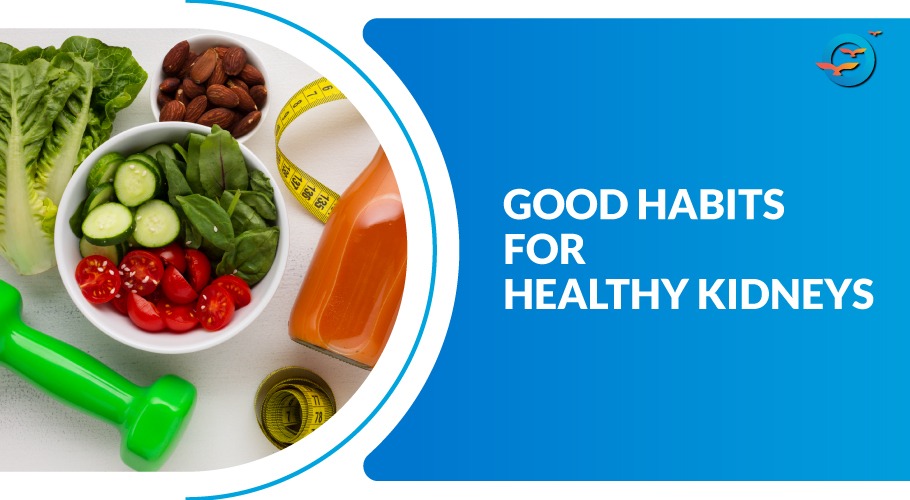Maintaining Good Habits for Healthy Kidneys

Kidneys play a vital role in filtering waste and excess fluids from your blood, helping to maintain your overall health. Kidney disease, if it develops, can lead to serious health complications making things challenging to manage.
The good news is that you can take proactive steps to promote healthy kidneys throughout your life by adopting and maintaining good habits.
In this article, we'll explore some key practices to keep your kidneys functioning optimally.
1. Stay Hydrated:
Proper hydration is essential for kidney health. Drinking an adequate amount of water helps your kidneys flush out toxins and waste products.
It also prevents the formation of kidney stones, a painful condition that can lead to kidney damage. Aim to drink at least eight cups of water a day, and adjust your intake based on your activity level and climate.
2. Maintain a Balanced Diet:
A balanced diet is crucial for maintaining healthy kidneys. Focus on consuming a variety of nutrient-rich foods, including fruits, vegetables, whole grains, lean proteins, and healthy fats.
Be mindful of your sodium intake, as excessive salt can raise blood pressure and strain your kidneys. Limit processed and high-sodium foods to protect your kidney health.
3. Monitor Your Blood Pressure:
High blood pressure is a leading cause of kidney disease. Regularly check your blood pressure and take steps to keep it within a healthy range.
If you have hypertension, work closely with your healthcare provider to manage it effectively. Lifestyle changes like reducing sodium intake, maintaining a healthy weight, and regular exercise can help control blood pressure.
4. Manage Diabetes:
Diabetes is another major risk factor for kidney disease. If you have diabetes, it's essential to manage your blood sugar levels carefully.
Follow your healthcare provider's recommendations, take prescribed medications as directed, and maintain a healthy lifestyle to prevent kidney complications.
5. Avoid Overuse of Pain Medications:
Certain over-the-counter pain medications, like non-steroidal anti-inflammatory drugs (NSAIDs), can harm your kidneys if used excessively.
Consult with your healthcare provider before using such medications regularly, especially if you have any kidney concerns.
6. Stay Active:
Regular physical activity supports overall health and can help prevent kidney disease. Exercise improves circulation, promotes heart health, and helps maintain a healthy weight, reducing the risk of kidney problems.
Aim for at least 150 minutes of moderate-intensity aerobic activity or 75 minutes of vigorous-intensity exercise per week.
7. Limit Alcohol Consumption:
Excessive alcohol intake can harm your kidneys and lead to various health issues. If you choose to drink alcohol, do so in moderation. For most adults, this means up to one drink per day for women and up to two drinks per day for men.
Conclusion:
Your kidneys are essential organs that deserve attention and care. By adopting these good habits and maintaining a healthy lifestyle, you can reduce your risk of kidney disease and support the longevity and function of these vital organs. Remember to consult with your healthcare provider regularly to monitor your kidney health and address any concerns promptly.
Freedom from Diabetes not only facilitates diabetes reversal but also fosters holistic healing. Our four robust protocols contribute to enhancing kidney function as well. In fact, many of our members have successfully prevented kidney complications.
Join our introductory webinar, the Discover Reversal Session, to learn how FFD enables diabetes and obesity reversal, along with managing other lifestyle disorders.
Our annual Holistic Transformation Program guides you through this journey towards a medication-free and healthier life. Remember to care of your kidneys; they will show their gratitude throughout your lifetime.

